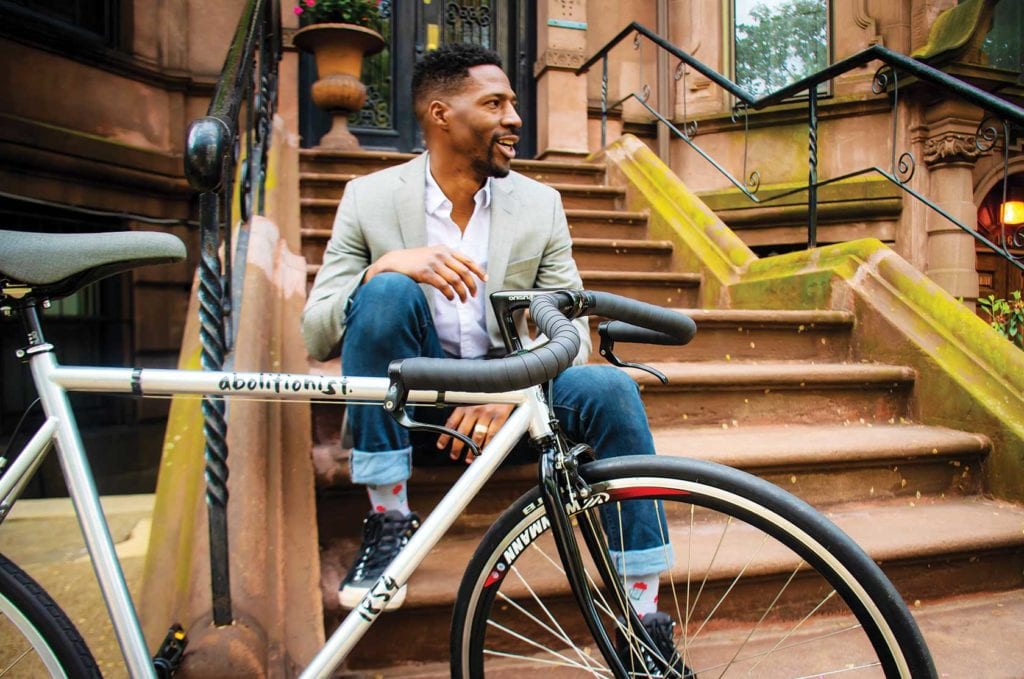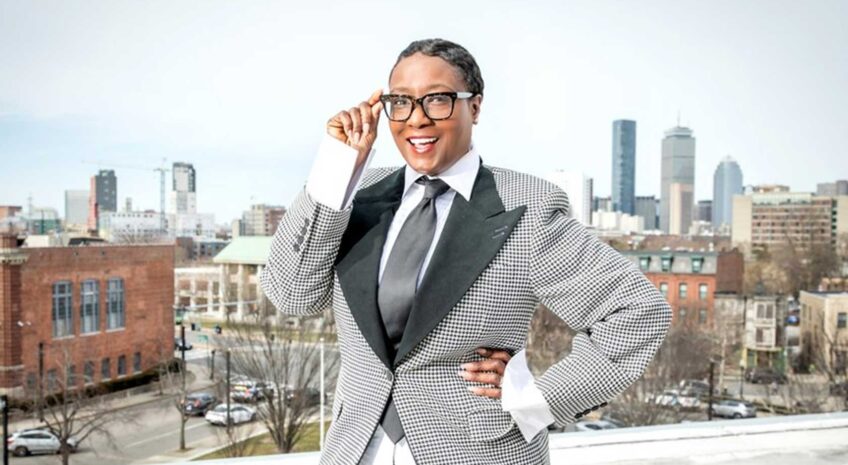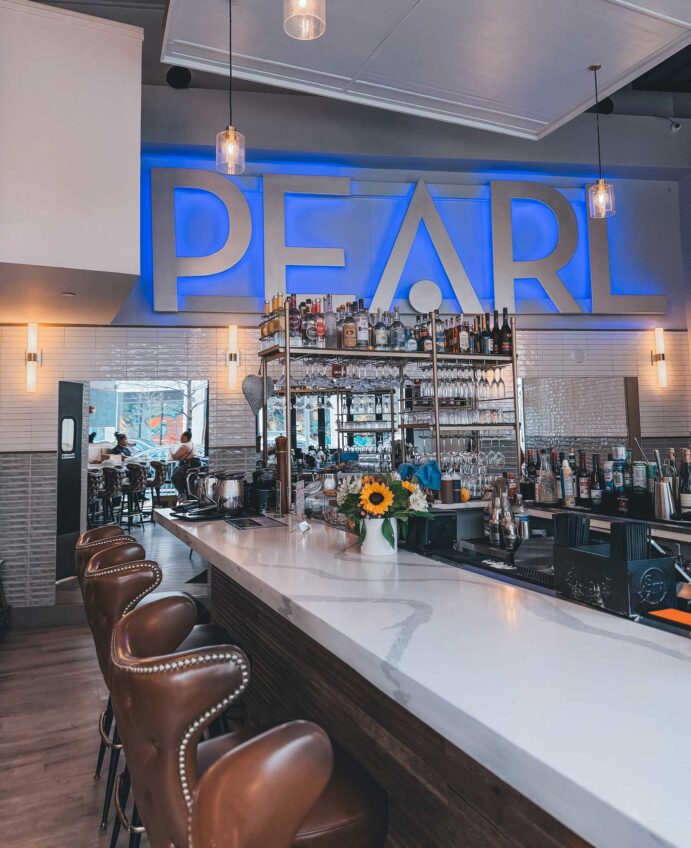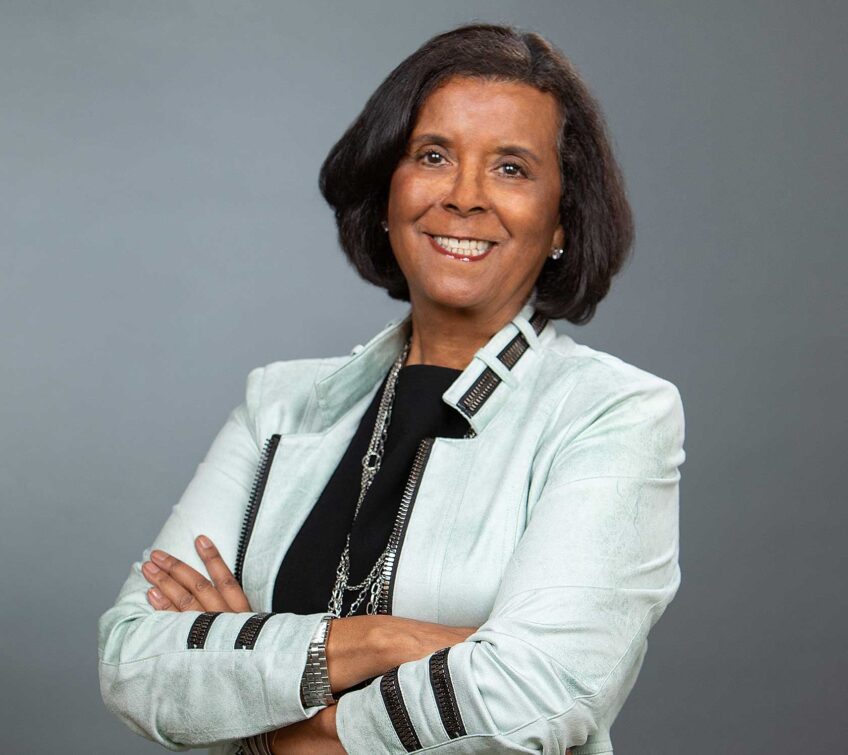1854 Cycling Company
Framingham entrepreneur builds business one bike at a time

Brandale Randolph was a teenager living in South Central Los Angeles when NBA star Magic Johnson opened a movie theater in the neighborhood.
Until then, black teens from South Central had to travel far to see a film and were often subject to police harassment when they entered the predominantly white areas where cinemas were located.
So when Johnson opened the Crenshaw 15 in 1995, it was a big deal.
“I was there,” Randolph says. “I had my photo taken with him.”

Brandale Randolph’s 1854 Cycling Company builds high-end bikes to order. He’s planning on increasing his production more than tenfold. Photo: Courtesy 1854 Cycling Company
Randolph doesn’t remember what film he saw, but he remembers the impact of seeing a black man invest in a neglected corner of the city.
More than 20 years later, after Randolph graduated from the Wharton School, worked in finance and launched a nonprofit anti-poverty agency, he is trying his hand at an entrepreneurial venture aimed at helping formerly incarcerated people obtain jobs that pay well.
In 2016, Randolph, now living in Framingham, founded the 1854 Cycling Company as a way to provide manufacturing jobs to formerly incarcerated men and women who ordinarily face challenges finding the well-paying jobs they need to get their lives back on track.
“My goal in life is to help alleviate poverty,” says Randolph, who spent his early years in Delhi, Louisiana with his low-income family before they moved to South Central Los Angeles at age 13.
“The bike thing is something I came across accidentally. I found out bike mechanics earn above minimum wage.”
Randolph took the name for his business from the year in which abolitionists William Lloyd Garrison, Sojourner Truth and Henry David Thoreau burned a copy of the U.S. Constitution in protest during a Fourth of July meeting of the Massachusetts Anti-Slavery Society in Framingham.
Turning his back on the business school playbook he learned at Wharton, Randolph adhered to a bootstrap model of business development, seeking no outside funds for growth. He simply used his savings to purchase bike frames and components and began custom-building bikes.
“A lot of schools want you to put together a 98-page business plan, then go to a venture capitalist,” he said. “But that doesn’t work for a lot of people of color. We have prove ourselves above and beyond what other people have to when we’re in the ideas phase.”
Working under this slow-growth model, Randolph initially learned the bicycle business by trial-and-error. His first batch of three bikes with sleek steel frames, leather saddles and handlebar grips was beautiful to behold, but none sold.
He modified the design, swapping out the leather for synthetic materials and began selling bikes.
That experience, he says, underscores the efficacy of the bootstraps approach.
“There’s no market research that can accurately predict how your product will sell,” he says. “The good thing about bootstrapping is that I didn’t build 1,000 models. I was able to survive because I only made three of those bikes.”
Sans leather, the Craft Racer model Randolph produced began to sell, priced at $599 — a substantial price cut from his initial models. The stylish, steel-framed single-speed has sold well not just in Boston, but around the world, Randolph says. So far, he’s sold more than 200 of the bikes, building them as they’re ordered over the internet.
With that success under his belt, Randolph says he is now committed to raising funds from investors. He plans to expand his hiring of formerly incarcerated men and women and scale up the business to where he can sell 5,000 bicycles a year. For that, he says, he’ll need an investment of $5 million.
He’s participating in the current cohort of MassChallenge, a Boston-based nonprofit business accelerator program.
He says his firm’s commitment to hiring the formerly incarcerated is an integral part of its brand.
He is now selling his bikes in Boston through Spokehouse – Bowdoin Bike School, an Upham’s Corner shop run by Noah and Giovanny De Amor. The duo plan to sell 1854 bikes exclusively at their new Sip and Spoke café/bike shop. To sell well in Dorchester, Randolph says, he’ll have to lower the price point some.
“We have to build something at the same quality, but for less,” he said. “It will happen.”
Randolph is also branching out into electric bicycles, fitting electric-assisted hubs on existing models. He has added a three-wheeled, electric-assisted cargo bike to his lineup.
Ultimately, he says, he doesn’t want to compete with major brands such as Trek or Schwinn, but rather continue to spin off specialized models that appeal to niche markets. But that doesn’t mean the business will stay small.
“We’re already selling bikes around the world,” he says. “We’re becoming a worldwide global brand.”


![Banner [Virtual] Art Gallery](https://baystatebanner.com/wp-content/uploads/2024/04/Cagen-Luse_Men-at-store-e1713991226112-150x150.jpg)



